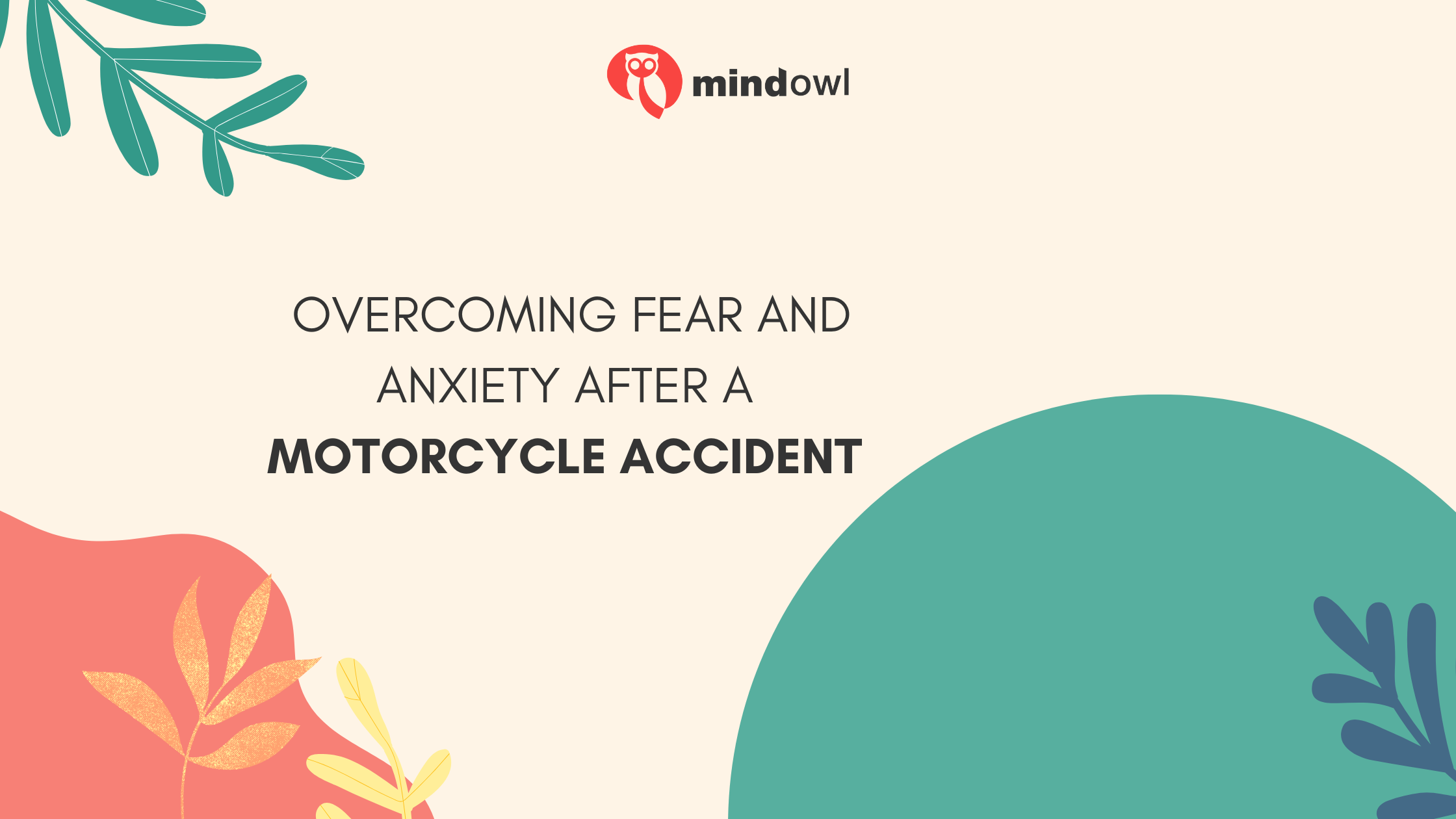After being in a motorcycle accident, it’s common to experience fear, anxiety, and trauma. Your sense of safety and control has been shaken. Even minor crashes can have a major mental impact. It’s important to acknowledge these feelings and learn healthy ways to cope.

Mental health issues affect many people. Over 40 million Americans (19.1% of the population) suffer from anxiety disorders, making them the most prevalent mental illness in America. If you find yourself struggling with anxiety after a motorcycle crash, you’re not alone.
Many others face similar challenges. An experienced motorcycle accident attorney can help gather crucial evidence to support your claim and make sure you get the compensation you deserve, and ease the financial stress that could worsen anxiety.
Steps to Overcome Fear
It’s completely normal to feel anxious or afraid after an accident. Here are some proven techniques to help you get back in the saddle:
Take It Slow
Don’t rush getting back on your bike before you’re ready. Go at your own pace and don’t give in to pressure from others. Start by sitting on your parked motorcycle. When you’re comfortable with that, try short rides close to home. Build back up to longer trips gradually. Forcing yourself to ride before you’re ready can worsen fear and anxiety.
Talk It Out
Discussing your concerns with friends, family or a mental health professional can help reduce fear. Voicing worries out loud takes their power away. Others may share insights from dealing with similar situations. Talking through the facts around motorcycle risks can provide a reality check on exaggerated fears. Knowing you’re not alone in your struggles can aid healing.
Consider Professional Help
If anxiety persists and interferes with your life, seek counseling. Specialized therapy like cognitive behavioral therapy and exposure therapy can effectively treat accident-related anxiety. Medications may also be prescribed for short-term use.
About 20% of those who regularly get professional mental health treatment fully recover. So don’t delay getting help if you need it. Overcoming issues on your own can be very difficult.
You may also want to contact an attorney to help recoup costs associated with medical treatment and therapy.
Look to the Facts
When you feel anxiety building, counter it with facts. Although motorcycle crashes are statistically more dangerous than car accidents, the total number of motorcycle accidents is lower. For example, in 2020 there were over 30,000 more auto accidents reported than motorcycle accidents during the same year. Focus on all the times you’ve ridden safely instead of one crash. Statistics show the vast majority of motorcycle trips are incident-free. Knowledge is power, so use the facts to your advantage.
Take Control
Avoiding motorcycles reinforces anxiety. To regain confidence, start small with activities that make you feel in control. Ride during daylight hours or stick to familiar routes. Ask an experienced rider to accompany you. Adjust your pace and distance from other vehicles. Do whatever you need to help manage fear while riding. Taking control back little by little can work wonders.
Have an Escape Plan
When nerves strike, have an exit strategy, like turning around or pulling over. Knowing you can stop at any time prevents feeling trapped. As you get more comfortable riding again, you likely won’t need to use escape plans. But having them can ease reentry fears.
Stay Positive
Focus on the joy of riding, not the potential risks. Don’t dwell on “what ifs.” Look for the upside, like improved skills from taking a safety course. Be patient with setbacks and celebrate small victories. Maintain perspective by reminding yourself that fear and anxiety are common hurdles after an accident. With time and effort, mind does overcome matter.
MindOwl Founder – My own struggles in life have led me to this path of understanding the human condition. I graduated with a bachelor’s degree in philosophy before completing a master’s degree in psychology at Regent’s University London. I then completed a postgraduate diploma in philosophical counselling before being trained in ACT (Acceptance and commitment therapy).
I’ve spent the last eight years studying the encounter of meditative practices with modern psychology.

